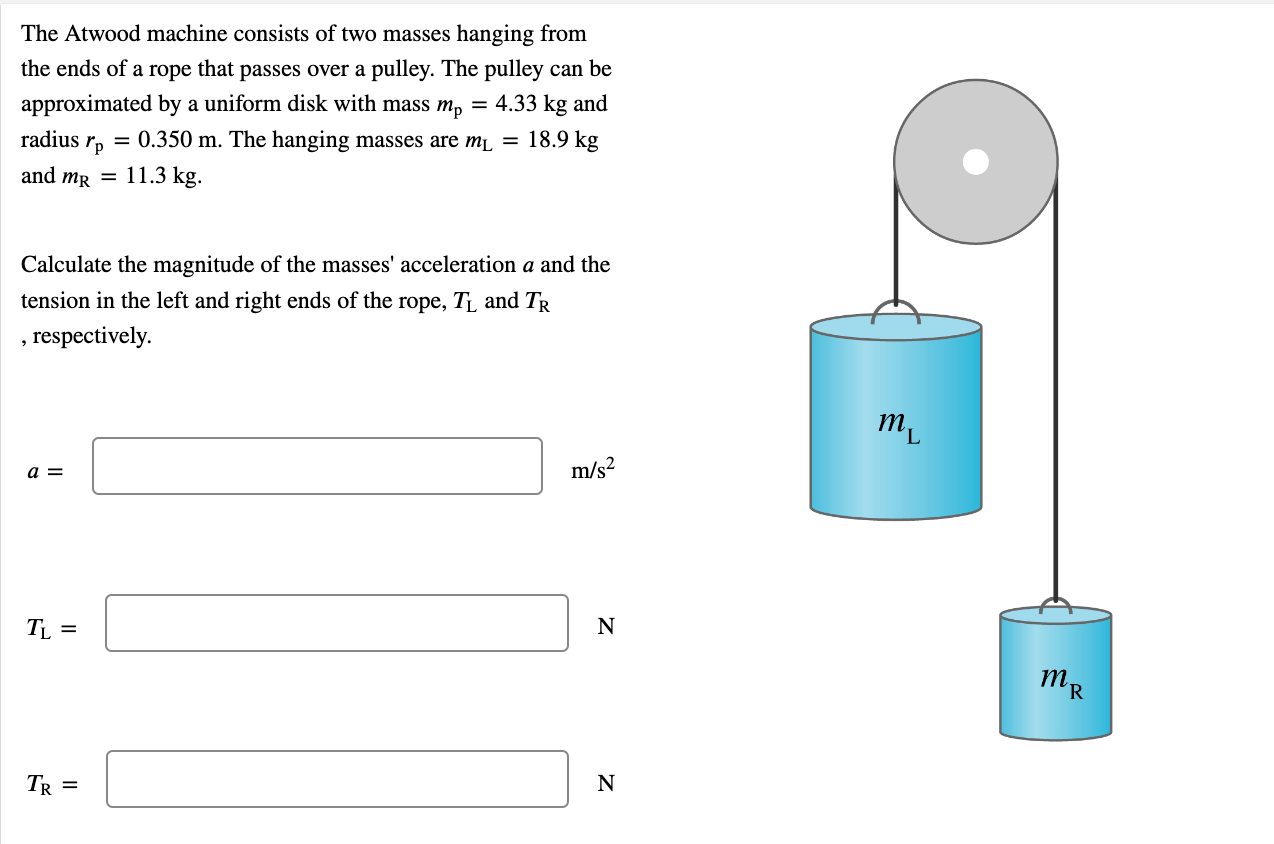A Flywheel In The Form Of A Uniformly Thick Disk
A Flywheel In The Form Of A Uniformly Thick Disk - We know the moment of inertia of a flywheel to be half a mass. Web a flywheel in the form of a uniformly thick disk of radius 1.63 m, has a mass of 23.6 kg and spins counterclockwise at 245 rpm. The moment of inertia of a flywheel is equal to half a mass. A tangential force of 0.235 n applied at the rim causes. To calculate the constant torque required to stop the flywheel, we can use the equation: Web a flywheel in the form of a uniformly thick disk of radius 1.68 m has a mass of 54.1 kg and spins. Web a flywheel in the form of a uniformly thick disk of radius 1.53 m has a mass of 32.1 kg and spins counterclockwise at 259rpm. The problem has a flywheel. Web a ring with the same mass as the disk is attached around the disk's rim. The problem we have is a flywheel.
Solved A flywheel in the form of a uniformly thick disk of
We know the moment of inertia of a flywheel to be half a mass. Web a flywheel in the form of a uniformly thick disk of radius 1.53 m has a mass of 32.1 kg and spins counterclockwise at 259rpm. A tangential force of 0.235 n applied at the rim causes. The moment of inertia of a flywheel is equal.
SOLVED A flywheel in the form of a uniformly thick disk of radius 1.23 m, has a mass Of 57.6 kg
Web a flywheel in the form of a uniformly thick disk of radius 1.68 m has a mass of 54.1 kg and spins. Web a flywheel in the form of a uniformly thick disk of radius 1.63 m, has a mass of 23.6 kg and spins counterclockwise at 245 rpm. We know the moment of inertia of a flywheel to.
Solved A flywheel in the form of a uniformly thick disk of
The problem we have is a flywheel. Web a flywheel in the form of a uniformly thick disk of radius 1.63 m, has a mass of 23.6 kg and spins counterclockwise at 245 rpm. Web a ring with the same mass as the disk is attached around the disk's rim. To calculate the constant torque required to stop the flywheel,.
Solved A flywheel in the form of a uniformly thick disk of
To calculate the constant torque required to stop the flywheel, we can use the equation: Web a ring with the same mass as the disk is attached around the disk's rim. The problem we have is a flywheel. The problem has a flywheel. Web a flywheel in the form of a uniformly thick disk of radius 1.68 m has a.
Solved A flywheel in the form of a uniformly thick disk of
The problem has a flywheel. Web a flywheel in the form of a uniformly thick disk of radius 1.68 m has a mass of 54.1 kg and spins. To calculate the constant torque required to stop the flywheel, we can use the equation: The problem we have is a flywheel. Web a ring with the same mass as the disk.
A flywheel in the form of a uniformly thick disk of radius 1.08 m has a... HomeworkLib
Web a flywheel in the form of a uniformly thick disk of radius 1.63 m, has a mass of 23.6 kg and spins counterclockwise at 245 rpm. The moment of inertia of a flywheel is equal to half a mass. We know the moment of inertia of a flywheel to be half a mass. Web a ring with the same.
Solved A flywheel in the form of a uniformly thick disk of
The moment of inertia of a flywheel is equal to half a mass. We know the moment of inertia of a flywheel to be half a mass. Web a ring with the same mass as the disk is attached around the disk's rim. A tangential force of 0.235 n applied at the rim causes. The problem has a flywheel.
Solved A flywheel in the form of a uniformly thick disk of
Web a flywheel in the form of a uniformly thick disk of radius 1.63 m, has a mass of 23.6 kg and spins counterclockwise at 245 rpm. The moment of inertia of a flywheel is equal to half a mass. We know the moment of inertia of a flywheel to be half a mass. The problem we have is a.
Solved A flywheel in the form of a uniformly thick disk of
Web a ring with the same mass as the disk is attached around the disk's rim. The moment of inertia of a flywheel is equal to half a mass. To calculate the constant torque required to stop the flywheel, we can use the equation: Web a flywheel in the form of a uniformly thick disk of radius 1.53 m has.
Solved A flywheel in the form of a uniformly thick disk of
The moment of inertia of a flywheel is equal to half a mass. Web a flywheel in the form of a uniformly thick disk of radius 1.68 m has a mass of 54.1 kg and spins. A tangential force of 0.235 n applied at the rim causes. Web a ring with the same mass as the disk is attached around.
The moment of inertia of a flywheel is equal to half a mass. A tangential force of 0.235 n applied at the rim causes. To calculate the constant torque required to stop the flywheel, we can use the equation: Web a flywheel in the form of a uniformly thick disk of radius 1.53 m has a mass of 32.1 kg and spins counterclockwise at 259rpm. The problem we have is a flywheel. Web a flywheel in the form of a uniformly thick disk of radius 1.63 m, has a mass of 23.6 kg and spins counterclockwise at 245 rpm. We know the moment of inertia of a flywheel to be half a mass. Web a flywheel in the form of a uniformly thick disk of radius 1.68 m has a mass of 54.1 kg and spins. Web a ring with the same mass as the disk is attached around the disk's rim. The problem has a flywheel.
Web A Ring With The Same Mass As The Disk Is Attached Around The Disk's Rim.
The moment of inertia of a flywheel is equal to half a mass. A tangential force of 0.235 n applied at the rim causes. To calculate the constant torque required to stop the flywheel, we can use the equation: The problem has a flywheel.
Web A Flywheel In The Form Of A Uniformly Thick Disk Of Radius 1.68 M Has A Mass Of 54.1 Kg And Spins.
The problem we have is a flywheel. Web a flywheel in the form of a uniformly thick disk of radius 1.63 m, has a mass of 23.6 kg and spins counterclockwise at 245 rpm. We know the moment of inertia of a flywheel to be half a mass. Web a flywheel in the form of a uniformly thick disk of radius 1.53 m has a mass of 32.1 kg and spins counterclockwise at 259rpm.










